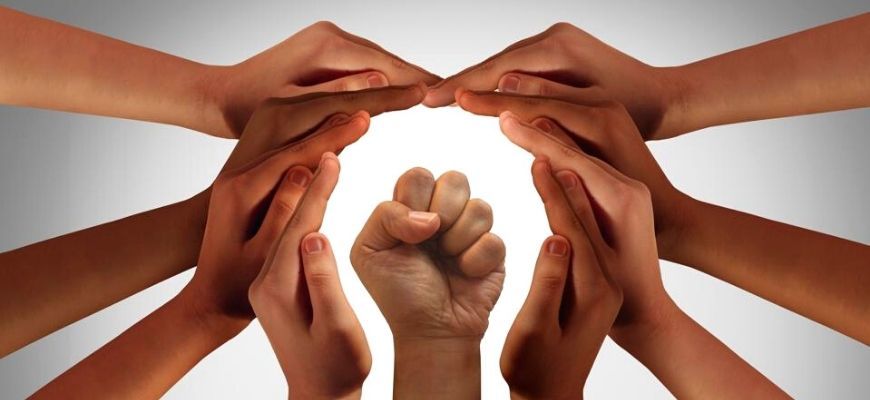Dr. Jumana Jassim Al-Asadi
Human rights issues are no longer confined to legal declarations or international treaties; they now rely heavily on societal acceptance and daily practice. In this context, cultural discourse plays a pivotal role in shaping public awareness of rights and freedoms.
Language, literature, art, religion, and media—all form the core of this discourse. They can either help to solidify the principles of human rights or, conversely, restrict them. This article explores the role of cultural discourse in embedding the values of human rights, analyzes its mechanisms of influence and challenges, and proposes ways to utilize culture in advancing justice and human dignity.
Cultural discourse is the symbolic product of society, encompassing the ideas, beliefs, and practices that reflect prevailing values. Its essential function is to transmit and reproduce these values—either positively or negatively. It includes:
Religious discourse: Interpretations and practices derived from sacred texts.
Media discourse: Messages conveyed through mass communication channels.
Literary and artistic discourse: Novels, poetry, cinema, and theater.
Educational discourse: Curricula and concepts disseminated through schools and universities.
Although human rights were born within a legal and international framework, they become truly effective only when they are transformed into societal values that are respected and practiced—such as dignity, gender equality, freedom of expression, and the right to education, health, and a decent life. Achieving this requires more than law; it requires aligning cultural discourse to embrace and advocate for these values.
Cultural discourse contributes to human rights through several key avenues:
Promoting tolerance and equality: Positive cultural discourse encourages acceptance of others and rejection of discrimination, whether based on religion, ethnicity, or gender.
Dismantling stereotypes: Literature, art, and media can deconstruct the harmful stereotypes that sustain discrimination against women, minorities, and people with disabilities.
Raising public awareness: Through storytelling, films, and television, cultural productions can humanize and emotionally engage audiences with human rights issues.
Challenging unjust power and traditions: Cultural discourse can act as a critical voice against oppressive customs or authoritarian policies and can motivate calls for reform.
However, the potential of cultural discourse is often hindered by several obstacles:
Political dominance: Official cultural narratives may be manipulated to justify violations and distract public attention from rights-based demands.
Censorship and restrictions: Limitations on cultural and artistic expression may suppress topics related to freedom and equality.
Religious extremism: Rigid interpretations of religious texts are sometimes used to legitimize discrimination or violence rather than promote justice and dignity.
Ignorance and low awareness: The absence of legal and cultural education weakens the public's ability to critically engage with dominant discourses.
To activate the potential of cultural discourse in support of human rights, several measures are essential:
Encouraging free cultural creativity: Supporting literary and artistic productions that address human rights issues.
Reforming educational curricula: Embedding concepts of justice, dignity, and equality in teaching frameworks.
Supporting independent and responsible media: Media that highlight rights violations and advocate impartially for human dignity.
Empowering civil and cultural institutions: Cultural centers and NGOs can lead impactful community awareness programs.
In conclusion, cultural discourse is not merely a reflection of society—it is a tool capable of reshaping it and awakening its human rights consciousness. The more diverse, open, and free culture becomes, the more it strengthens human rights as a daily lived reality rather than abstract legal text. Thus, building a human rights culture begins with strategic investment in all forms of cultural discourse, making it a vehicle for dignity, equality, and justice.
Dr. Jumana Jassim Al-Asadi is a member of the Al-Naba’a Forum for Dialogue and a faculty member at the University of Karbala.*






Comments